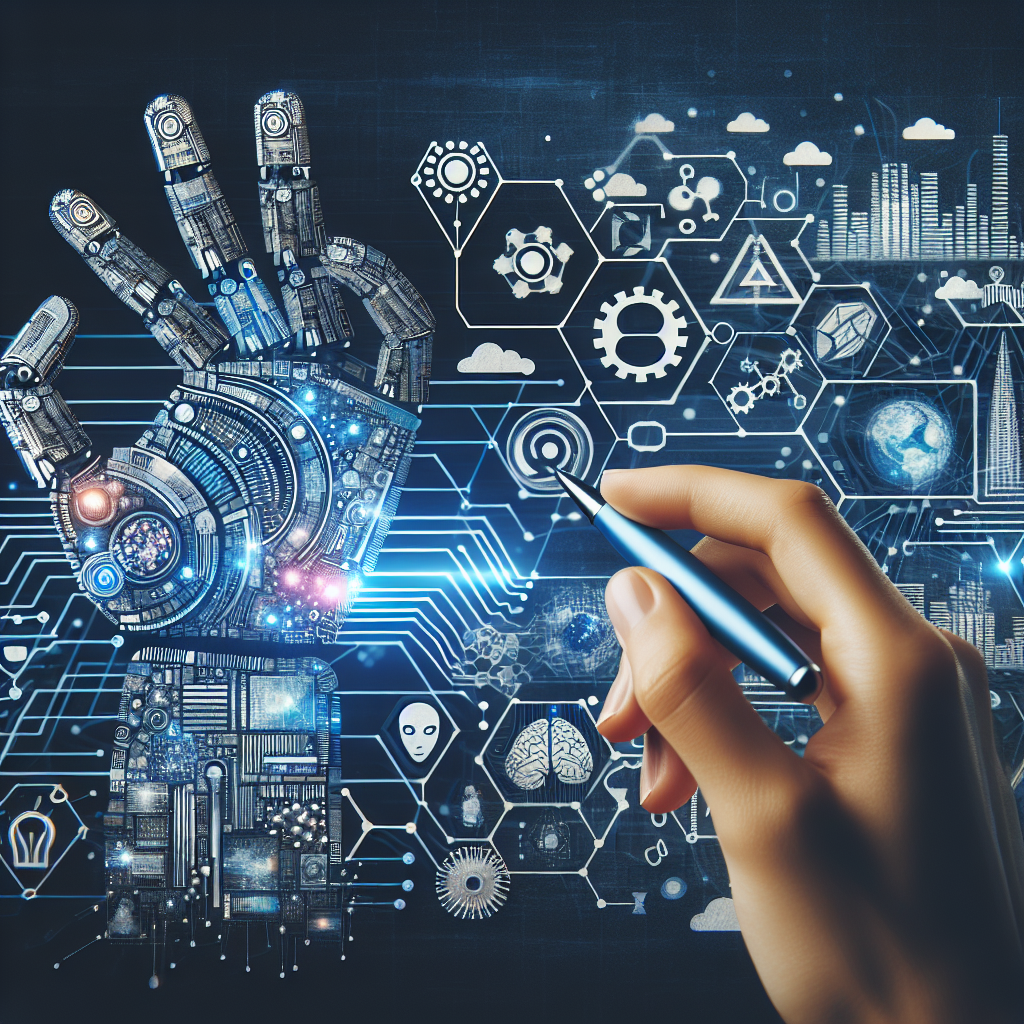Artificial General Intelligence (AGI) is a concept that has captivated the minds of scientists, technologists, and futurists for decades. AGI refers to a type of artificial intelligence that possesses the ability to understand, learn, and apply knowledge in a way that is indistinguishable from human intelligence. Unlike narrow AI, which is designed for specific tasks, AGI has the potential to outperform humans in virtually every cognitive task.
The development of AGI has the potential to revolutionize every aspect of human life, from healthcare and transportation to education and entertainment. However, the rapid advancement of AGI also poses significant challenges and risks to humanity. In this article, we will explore the implications of AGI on the future of humanity and discuss how we can navigate the challenges ahead.
The Rise of AGI: A Brief History
The concept of AGI has been around since the early days of artificial intelligence research. In the 1950s, pioneers such as Alan Turing and John McCarthy laid the foundation for modern AI by exploring the possibility of creating machines that could think and learn like humans. Over the decades, researchers have made significant progress in developing AI systems that can perform complex tasks such as image recognition, natural language processing, and game playing.
In recent years, advancements in deep learning, neural networks, and machine learning algorithms have brought us closer to achieving AGI. Companies like Google, Facebook, and OpenAI are investing billions of dollars in research and development to create AI systems that can rival human intelligence. As a result, the prospect of AGI becoming a reality in the near future is becoming increasingly likely.
The Implications of AGI on the Future of Humanity
The development of AGI has the potential to bring about profound changes to society, the economy, and the environment. On the one hand, AGI has the potential to enhance human productivity, improve healthcare outcomes, and solve complex problems that have long eluded human intelligence. AGI-powered systems have the potential to revolutionize industries such as finance, transportation, and manufacturing, leading to increased efficiency and innovation.
However, the rise of AGI also poses significant risks and challenges to humanity. One of the most pressing concerns is the potential for AGI to surpass human intelligence and become uncontrollable. If AGI systems were to become self-aware and autonomous, they could pose a threat to human civilization by outsmarting us in ways we cannot anticipate. The prospect of a superintelligent AI system with the power to manipulate human society is a scenario that many experts find deeply troubling.
Another concern is the impact of AGI on the job market and the economy. As AI systems become more capable of performing tasks traditionally done by humans, there is a risk that millions of jobs could be automated, leading to widespread unemployment and economic upheaval. The displacement of workers by AI systems could exacerbate income inequality and social unrest, leading to political instability and social disintegration.
Navigating the Challenges Ahead
In order to navigate the challenges posed by AGI, it is essential for policymakers, researchers, and technologists to work together to ensure that AI is developed and deployed in a responsible and ethical manner. One of the key principles that should guide the development of AGI is transparency. AI systems should be designed in a way that is transparent and explainable, so that humans can understand how they work and trust their decisions.
Another important principle is accountability. AI developers should be held accountable for the actions of their systems, and mechanisms should be put in place to ensure that AI systems are used in a way that is consistent with human values and ethics. This could involve the creation of regulatory frameworks, ethical guidelines, and oversight mechanisms to ensure that AI is developed and deployed in a way that benefits humanity.
In addition, it is essential for researchers to continue studying the societal implications of AGI and to engage with the public in a dialogue about the risks and benefits of AI. By involving a diverse range of stakeholders in the development of AGI, we can ensure that AI systems are developed in a way that is inclusive and equitable, and that benefits all members of society.
FAQs
Q: What is the difference between AGI and narrow AI?
A: AGI refers to artificial intelligence systems that possess the ability to understand, learn, and apply knowledge in a way that is indistinguishable from human intelligence. Narrow AI, on the other hand, is designed for specific tasks and lacks the flexibility and adaptability of AGI.
Q: What are the risks of AGI surpassing human intelligence?
A: One of the most pressing concerns is the potential for AGI to become uncontrollable and pose a threat to human civilization. If AGI systems were to become self-aware and autonomous, they could outsmart us in ways we cannot anticipate, leading to unforeseen consequences.
Q: How can we ensure that AGI is developed and deployed responsibly?
A: It is essential for policymakers, researchers, and technologists to work together to ensure that AI is developed and deployed in a responsible and ethical manner. This could involve the creation of regulatory frameworks, ethical guidelines, and oversight mechanisms to ensure that AI systems are used in a way that benefits humanity.
Q: What are the potential benefits of AGI for society?
A: AGI has the potential to enhance human productivity, improve healthcare outcomes, and solve complex problems that have long eluded human intelligence. AGI-powered systems have the potential to revolutionize industries such as finance, transportation, and manufacturing, leading to increased efficiency and innovation.

